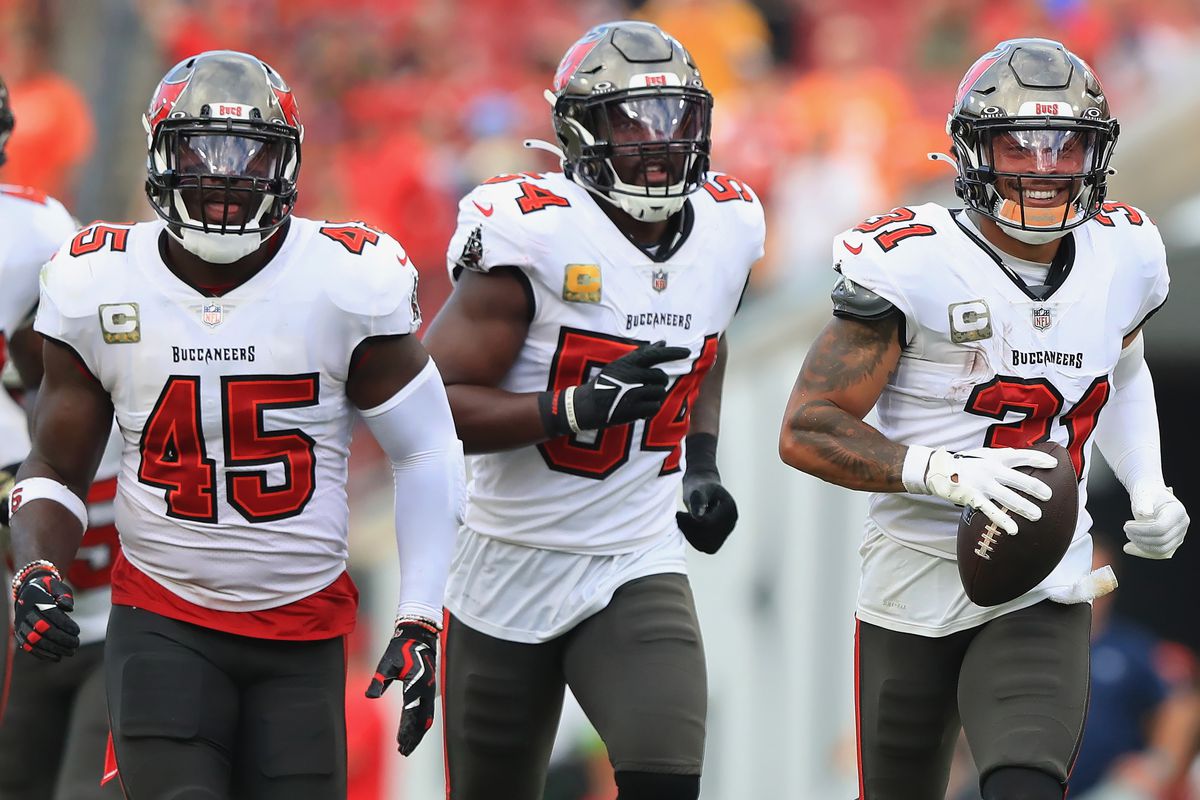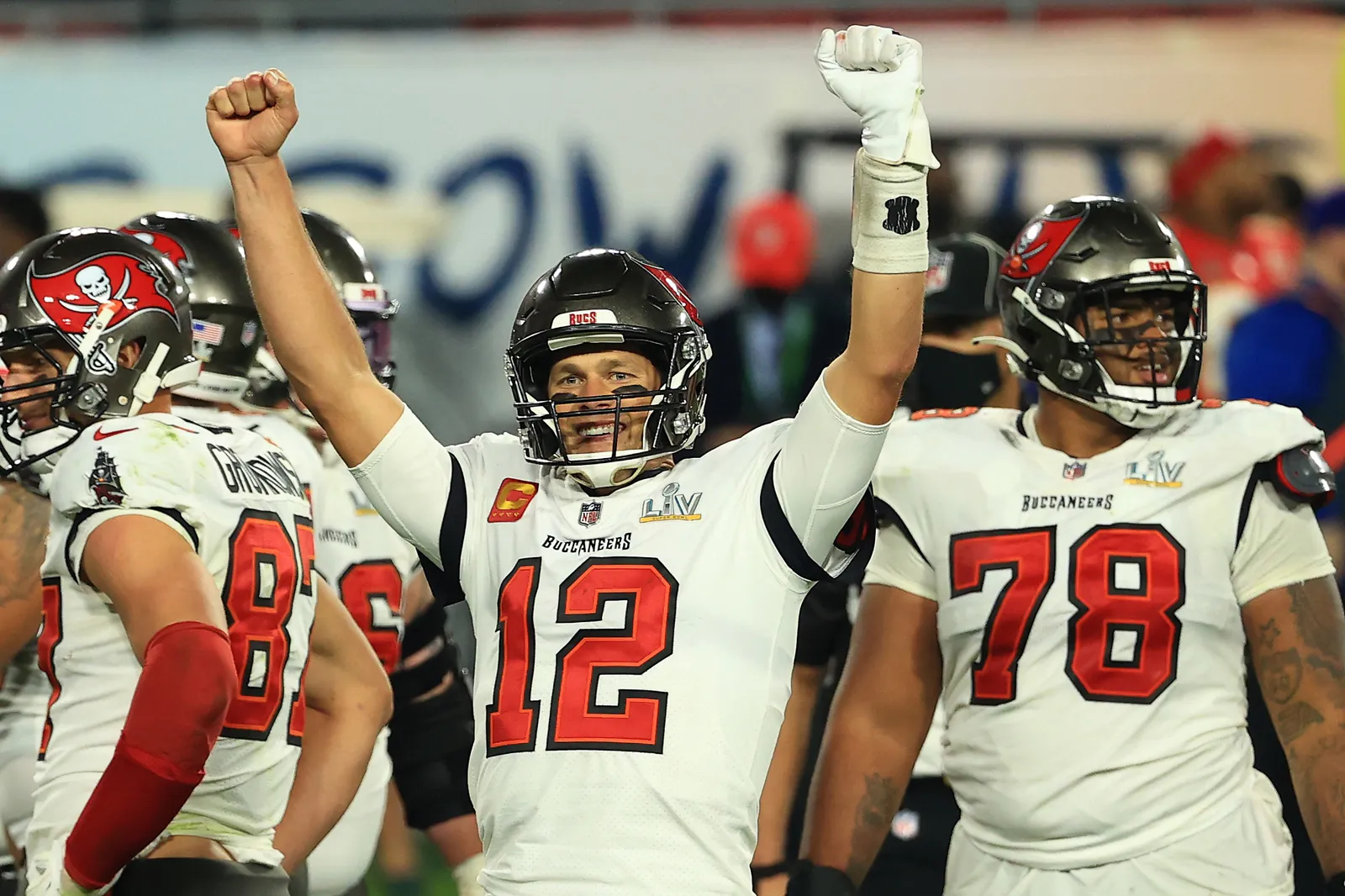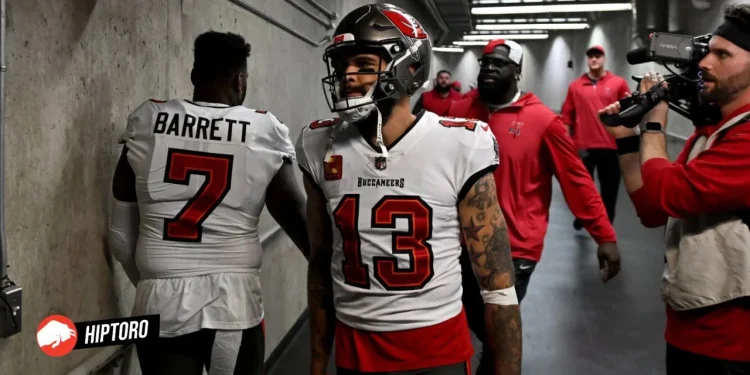In the high-stakes world of the NFL, securing top talent often comes with a hefty price tag, a reality the Tampa Bay Buccaneers are grappling with following Mike Evans’ significant contract extension. As one of the league’s elite wide receivers, Evans’ two-year, $52 million deal reaffirms his pivotal role in the team’s offense.
However, this financial commitment casts a long shadow over the Buccaneers’ ability to retain key players, particularly three free agents whose futures with the team now hang in the balance.

Antoine Winfield Jr. on the Outs
Among the affected is Antoine Winfield Jr., whose performance has not only placed him at the pinnacle of NFL safeties but also priced him out of the Buccaneers’ range. As the highest-graded safety by PFF in 2023, Winfield’s market value, estimated at $18.4 million annually, positions him to become the league’s top-paid at his position.
This valuation reflects both his on-field excellence and the rarity of safeties receiving such financial prioritization in today’s game. With a resume boasting career highs across the board, including tackles, sacks, and interceptions, Winfield’s departure seems a foregone conclusion, a casualty of the fiscal implications of retaining a star like Evans.
Devin White’s Uncertain Future
Linebacker Devin White‘s tenure with the Buccaneers is also under scrutiny. Once viewed as the cornerstone of Tampa Bay’s defense, White’s recent performance and a contentious relationship with the team suggest his days in Tampa Bay may be numbered.
Despite a drop in productivity and a notable sideline during a crucial late-season game, White’s contributions to the Buccaneers’ Super Bowl victory remain undisputed. Nevertheless, his projected salary and the franchise’s financial constraints likely dictate a future elsewhere, making room for fresh faces to fill the void left by his expected exit.
Tampa Bay would never be the same. pic.twitter.com/3Dzk9zRXBJ
— Tampa Bay Buccaneers (@Buccaneers) March 4, 2024
Ryan Neal’s Short Stint
Ryan Neal‘s story serves as another example of the Buccaneers’ financial juggling act. After a breakout season with the Seattle Seahawks, Neal’s move to Tampa Bay seemed promising. Yet, despite a solid start, his lack of standout statistical contributions last season—underscored by a disappointing PFF grade—makes it difficult to justify an extension, especially given the franchise’s tightened purse strings.
Neal’s potential departure underscores the Buccaneers’ challenging balancing act: investing in star power while maintaining a competitive team dynamic.

Tampa Bay Buccaneers’ Financial Tightrope
As the Tampa Bay Buccaneers look ahead, the decision to secure Mike Evans at a premium has set a challenging precedent. The team now faces the unenviable task of navigating their financial limitations while striving to maintain a competitive edge in the league. The departures of Antoine Winfield Jr., Devin White, and Ryan Neal appear inevitable, each a consequence of the Buccaneers’ strategic financial allocation.
This scenario serves as a stark reminder of the complexities of team management in the NFL, where the cost of retaining elite talent often necessitates tough sacrifices elsewhere on the roster. As Tampa Bay moves forward, the focus will undoubtedly be on finding a balance between fiscal responsibility and fielding a team capable of contending for the highest honors.










